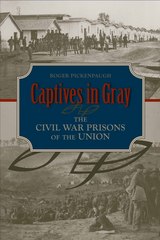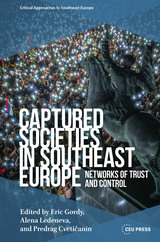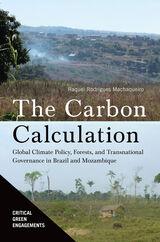4 books about Liberation Theology
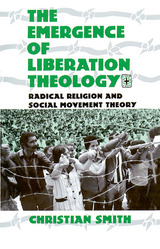
The Emergence of Liberation Theology
Radical Religion and Social Movement Theory
Christian Smith
University of Chicago Press, 1991
Liberation theology is a school of Roman Catholic thought which teaches that a primary duty of the church must be to promote social and economic justice. In this book, Christian Smith explains how and why the liberation theology movement emerged and succeeded when and where it did.
[more]
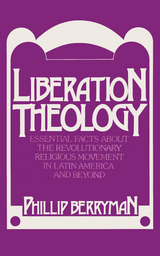
Liberation Theology
Phillip Berryman
Temple University Press, 1987
"[A]n introduction that competently places liberation theology in its cultural and religious context, [and] elucidates its roots in the Bible and in Catholic theology."
--The Washington Post Book World
In the chaos that is Latin American politics, what role does the Catholic church play with regard to its clergy and its members? How does the church function in Latin America on an everyday, practical level? And how successful has the church been intervening in political matters despite the fact that Latin American countries are essentially Catholic nations? Philip Berryman addresses these timely and challenging issues in this comprehensive.
Unlike journalistic accounts, which all too frequently portray liberation theology as an exotic brew of Marxism and Christianity or as a movement of rebel priests bent on challenging church authority, this book aims to get beyond these clichés, to explain exactly what liberation theology is, how it arose, how it works in practice, and its implications. The book also examines how liberation theology functions at the village or barrio level, the political impact of liberation theology, and the major objections to it posed by critics, concluding with a tentative assessment of the future of liberation theology.
"Liberation Theology is just the book I've been searching for--unsuccessfully until now--as the basic text for the course I offer on Latin American Liberation Theology. It is everything I need. Concise, well-written, and balanced, it gives some real attention to the critics of Liberation Theology, as any fair text must do."
--Harvey Cox, Harvard Divinity School
"...a very clear, reliable, and readable introduction to and survey of liberation theology. It is also an introduction to the literature on the subject interwoven with history...[and] Berryman is a very trustworthy interpreter."
--Dr. Larry Rasmussen, Union Theological Seminary
"The book answers the charge that Liberation Theology is essentially Marxist by indicating to the reader that the use of Marxism is something minor in comparison to a Biblical reading and interpretation in the light of contemporary social and political realities.... It advocates the use of theologies of liberation and is addressed to an American audience."
--Monsignor Joseph W. Devlin, Department of Religion, LaSalle University
"... adds significantly to the documenting and appraisal of a theological movement of lasting importance."
--John Raines, Department of Religion, Temple University
[more]

Liberation Theology and Praxis in Contemporary Latin America
As It Was in the Beginning?
Edited by Pablo Bradbury and Niall H.D. Geraghty
University of London Press, 2025
A study of liberationist Christianity in Latin America, offering new insights for discussing liberation theology.
This highly interdisciplinary collection brings together diverse and complementary approaches from history, theology, cultural studies, architecture, sociology, and anthropology to reevaluate the legacy of liberation theology in Latin America.
Liberation theology was born in the 1960s at a time of Church renewal and socio-economic ferment, as many sought more radical solutions in the context of the exhaustion of developmentalist projects and the institutionalized violence of capitalism. The book’s central focus on the lived experiences and embodied practices of those engaged in social action in the region challenges the narrative that suggests that liberation theology had reached its decline by the end of the 1970s. It demonstrates that liberationist Christianity was at once more diverse and internally conflicted, more widely resonant outside ecclesial confines, and more interconnected over time than often allowed.
The chapters investigate a range of topics: the ecclesiology of a revolutionary movement of Argentine priests in the 1960s and ́1970s, the engagement of liberation theology with Participatory Action Research and its influence on architectural approaches and urbanism, 1980s feminist liberation theology, encounters with Western human rights at a time of Cold War repression and exile, and ecofeminist political theology in contemporary Latin America. Pulling these threads together, Liberation Theology and Praxis in Contemporary Latin America invites us to reconsider how we understand liberation theology’s history as well as its reach into the present day.
This highly interdisciplinary collection brings together diverse and complementary approaches from history, theology, cultural studies, architecture, sociology, and anthropology to reevaluate the legacy of liberation theology in Latin America.
Liberation theology was born in the 1960s at a time of Church renewal and socio-economic ferment, as many sought more radical solutions in the context of the exhaustion of developmentalist projects and the institutionalized violence of capitalism. The book’s central focus on the lived experiences and embodied practices of those engaged in social action in the region challenges the narrative that suggests that liberation theology had reached its decline by the end of the 1970s. It demonstrates that liberationist Christianity was at once more diverse and internally conflicted, more widely resonant outside ecclesial confines, and more interconnected over time than often allowed.
The chapters investigate a range of topics: the ecclesiology of a revolutionary movement of Argentine priests in the 1960s and ́1970s, the engagement of liberation theology with Participatory Action Research and its influence on architectural approaches and urbanism, 1980s feminist liberation theology, encounters with Western human rights at a time of Cold War repression and exile, and ecofeminist political theology in contemporary Latin America. Pulling these threads together, Liberation Theology and Praxis in Contemporary Latin America invites us to reconsider how we understand liberation theology’s history as well as its reach into the present day.
[more]
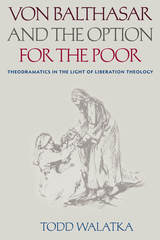
Von Balthasar & the Option for the Poor
Theodramatics in the Light of Liberation Theology
Todd Walatka
Catholic University of America Press, 2017
Hans Urs von Balthasar’s vast corpus of theological, philosophical, literary, and pastoral writings remains one of the most impressive achievements in 20th century thought. In light of liberation theology and now the papacy of Francis, however, a theological affirmation of the option for the poor remains dangerously weak in Balthasar’s corpus. Von Balthasar and the Option for the Poor offers a sympathetic reforming of Balthasar’s account of the drama of salvation – what he calls “theodramatics” – in response to this weakness.
[more]
READERS
Browse our collection.
PUBLISHERS
See BiblioVault's publisher services.
STUDENT SERVICES
Files for college accessibility offices.
UChicago Accessibility Resources
home | accessibility | search | about | contact us
BiblioVault ® 2001 - 2025
The University of Chicago Press



